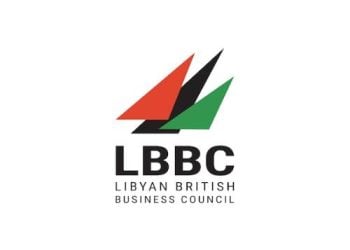By Sami Zaptia.
London, 14 April 2017:
In an unprecedented attack on all the previous six governments he had served with, Tripoli-based Central Bank of Libya Governor Saddek Elkaber launched a scathing on Libya’s executives for their poor economic policies. The attack came in a published press release last night.
The main point of contention between the CBL and the Serraj-led Presidency Council and designated Government of National Accord (PC/GNA) is the official valuation of the Libyan Dinar (LD). The PC/GNA have been pressuring the CBL to devalue the LD from its current official exchange rate of LD 1.4 to the dollar to a rate closer to the sky-high black market of LD 8 to the dollar. This they feel would cancel the effect of subsidies, solve the liquidity problem and reduce the black market exchange rate and reduce bank corruption associated with hard currency/letters of credit distribution.
Elkaber, on the other hand, feels that a good part of the black market value is psychological and political. He is of the view that the authorities of the day should make better efforts in achieving real political accord, increasing oil production (to increase hard currency revenues) imposing security, reducing crime and lawlessness, controlling borders, reforming subsidies, cutting state spending – as well as devaluing the LD. He does not believe that devaluation alone can act as, as he put it, a ‘‘magic wand’’, but needs to be part of a comprehensive ‘‘package’’ of reforms and policies.
Elkaber started his press statement by describing and condemning the recent horrific militia attack on his home. ‘‘In a horrific incident, a heavily armed group on Monday 10/04/2017 violated the sanctity of a residential building in a barbaric manner that lacked the ethics and values of our true religion and our social knowledge. They did not take into consideration the women and children during their assaults on the property and on the elderly man who was severely beaten in order to force him to hand over the keys to the car which was stolen, as documented by the relevant police station’’.
It is not clear if it is this personal attack on his home or the mounting public and media onslaught that has triggered him into giving a rare press conference.
‘‘The objectives of this attack go beyond the criminal framework and to a more dangerous framework, in an attempt to threaten and blackmail this institution, represented by its chairman, to change its positions and control it so as to achieve material and political interests and serve selfish ambitions and external purposes at the expense of the Libyan people’’, he stated.
Elkaber then accused the past executives of failing in their roles and preceded to set out an economic reform plan for them.
‘‘In these years, Libya has passed through six governments, which have always used the central bank as the peg on which they tried to hang their failure, instead of fulfilling their responsibilities in maintaining security, protecting oil – the sole source of the Libyan strength – controlling ports and borders, activating the judiciary, collecting taxes and duties, cutting spending, countering the smuggling of (subsidised) goods and fuel, reducing state employees, reducing diplomatic and academic missions abroad, setting standards for treatment abroad and cutting administrative spending – rather than making every effort to make the CBL a scapegoat’’.
The Tripoli CBL governor then ironically set his sights on the so-called ‘‘corrupt money’’, at the very time when he is accused of either creating or being in league with this corrupt money that have prospered through Letters of Credit at the official exchange rate and its margin with the black market rate. And in another twist of irony Elkaber accuses the corrupt money of waging a media campaign against him.
‘‘Corrupt money carried out its deed, in order to divert attention from its role in the destruction of the national economy. It created various media platforms, through which it distorted the image of the Central Bank, and carried out ongoing incitement, and broadcast rumours, and increased divisiveness, in a systematic manner aimed at changing the positions of this institution and making it a soft tool in their hands’’.
‘‘Many have wrongly attempted to convey to the ordinary citizen that the CBL has a magic wand to solve the problem of liquidity, the provision of hard currency, to change the LD exchange rate, and the illusion that the Central Bank does not want to do so’’.
‘‘The reality is that the lack of security and the lack of political accord have led to the existence of LD 28 billion outside the banking sector, and the hard currency ban into Libya since December 2013, and that an exchange rate revaluation should be linked to a package of economic measures in order to give the desired results’’.
The CBL governor told the Libyan public: ‘‘you are paying the price of the accumulated mistakes of governments addicted to not to telling the truth, in search for a scapegoat for their mistakes. I tried hard to preserve Libya’s wealth. I did not master the art of selling and buying words. I am not a permanent guest on your screens. I did not tickle your emotions with honeyed promises that neither fattened nor satisfied your hunger.
‘‘I have committed to a painful silence when it was in the interest of the nation, and when the silence was in order to preserve civil peace, so that Libyan bloodsuckers do not exploit any of these statements, and they don’t trade in the citizens and worsen their lives.’’
Ending on an optimistic note, Elkaber said he was ‘‘confident that the intensified cooperation of the Central Bank and related parties, especially the Presidential Council, will enable us to overcome the crisis and deal with it radically – away from painkillers and soothing solutions, which are useless’’.
‘‘This is just the tip of the iceberg’’, warned Elkaber promising he would ‘‘communicate soon in detail, through a press conference’’.
It will be interesting to hear what Elkaber will say at his press conference. The whole country awaits. One black market trader told this publication yesterday that the Libyan foreign exchange black market was all but frozen these last few days awaiting Elkaber’s statement.
He speculated that if Elkaber had something positive and substantial to say the LD rate will fall quickly. However, he warned that if there was no real policy change the black market LD-dollar exchange rate could shoot ‘‘well above the LD 10 rate’’.
It will be recalled that Libya’s House of Representatives in Tobruk has been discussing the replacement of Governor Elkaber.








